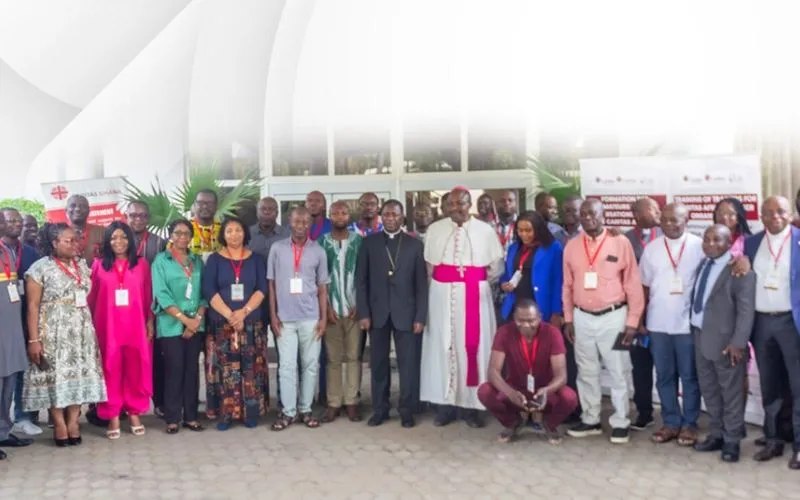Accra, 07 December, 2024 / 10:16 pm (ACI Africa).
The Apostolic Nuncio in Ghana has commended Caritas Ghana for organizing a Community-led disaster risk management workshop, describing the initiative as a “practical embodiment” of Pope Francis’ call to safeguard the planet.
Archbishop Julien Kaboré who was speaking at the opening ceremony of the three-day Training of Trainers (ToT) event emphasized the importance of integrating the principles of integral ecology, as outlined in Pope Francis’ encyclical Laudato Si, into disaster risk management efforts.
“Disasters, whether natural or man-made, present grave challenges to communities across the world, especially in Africa, where vulnerabilities are often magnified by poverty, environmental degradation, and social inequalities,” Archbishop Kaboré said during the event that was held at the Ghana Institute for Management and Public Administration (GIMPA).
He added, “Pope Francis reminds us in the encyclical Letter Laudato Si, that we are not helpless in the face of these challenges. Rather, this is a call to act with courage and creativity, working together to protect our common home and uphold the dignity.”
“This workshop is a practical embodiment of that call, as it seeks to empower leaders of Caritas organizations to develop community health-centered strategies for disaster preparedness and response,” he said.








